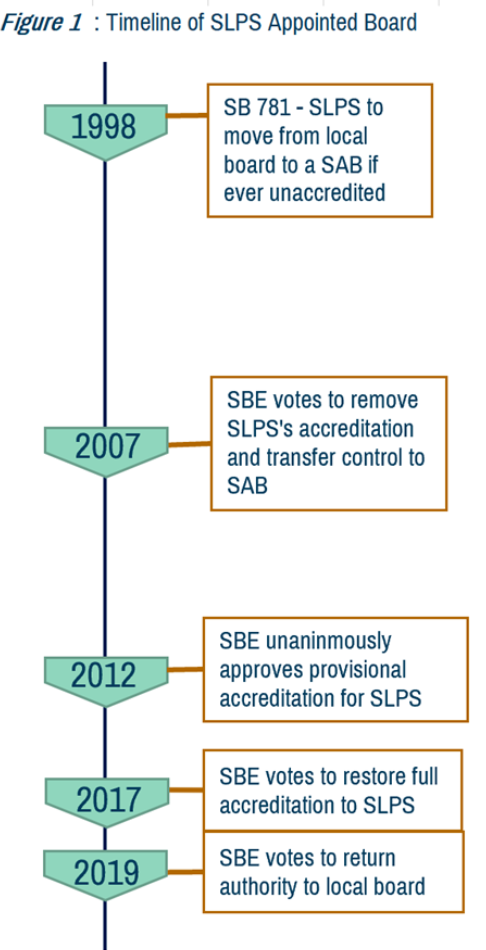Exiting Gracefully? Lessons on De-Implementing State-Appointed Governance from Literature and Stakeholder Perspectives in Missouri
By: Evan Rhinesmith, Ph.D.; Olivia Marcucci, Ph.D.; Kelly M. Harris, Ph.D. CCC-SLP; Aaron Park, Kathryn Coleman, Tory Christian, & Gary W. Ritter, Ph.D.
The state of Missouri will soon consider transitioning back from state-appointed governance to locally elected boards in two districts in the St. Louis metropolitan area, having already done so in another. The PRiME Center reviewed the literature to find evidence-based strategies for successful transitions to local governance, as well as conducted an empirical study investigating stakeholders’ perspectives on appropriate strategies to exit state-appointed governance in Missouri school districts. The data were collected via interviews and focus groups from diverse stakeholder groups, including appointed and elected board members, administrators, educators, and parents (n=33). Thematic, emergent analysis revealed several main takeaways.
Key Points:
Our deep review of the existing evidence uncovered no clear guidelines from research or practice on how to successfully exit a state intervention.
State intervention has often led to improved financial stability in affected districts but has rarely led to sustained academic improvement in these districts.
Setting reasonable expectations for exit conditions, ideally aligned with the rationale for entry, can ease the transition back to local governance (ideally aligned with the rationale for entry).
More generally, early outreach and robust community engagement with clear and consistent communication between state officials and local community members is necessary for a smooth transition back to local governance.
Sudden transitions between appointed to elected boards are problematic.
There is a need for targeted and on-going training of board members.
Cultivating a culture of high-quality candidates for school boards may ease exit strategy concerns and may prevent future intervention.
Please Cite As: Rhinesmith, E., Marcucci, O., Harris, K., Park, A., Coleman, K., Christian, T., & Ritter, G. (2022). Exiting Gracefully? Lessons on De-Implementing State-Appointed Governance from Literature and Stakeholder Perspectives in Missouri. Policy Research in Missouri Education, 4(13). Saint Louis University. https://www.sluprime.org/education-reports-database/dese-intervention
This work was supported by the Missouri Department of Elementary and Secondary Education.

